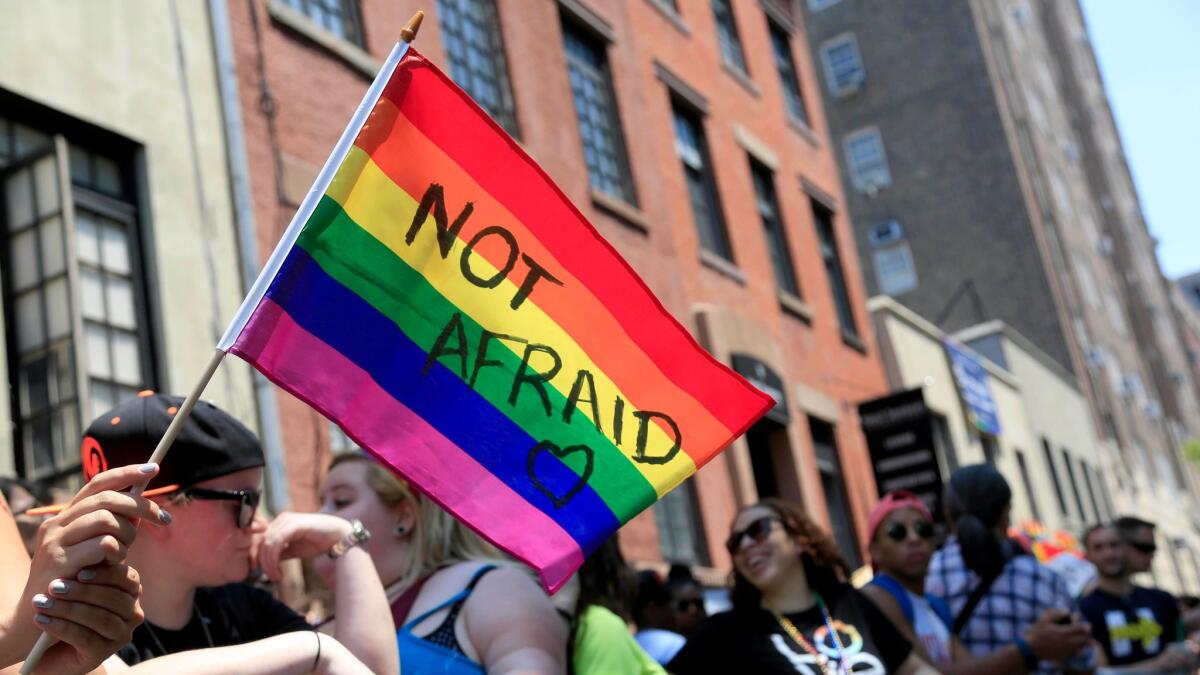Opinion: Civil rights activists should welcome protection for LGBTQ people

- Share via
To the editor: On Tuesday, the U.S. 7th Circuit Court of Appeals ruled that the Civil Rights Act of 1964 protects LBGTQ employees from workplace discrimination. In response, Bishop Garland R. Hunt is quoted in the article as saying this decision is an “atrocity to the African American lives lost to pass the Civil Rights Act.” (“LGBTQ people now protected under Civil Rights Act, but some aren’t OK with that,” April 5)
Hunt fails to recognize how many in the LBGTQ community have been killed, beaten or discriminated against in a number of situations, just as African Americans were before 1964. LBGTQ persons are simply trying to get the same recognition and protections that others enjoy. It is hypocritical of Hunt and the religious sector to deny LBGTQ their full and equal civil rights based on their sexual orientation.
As an attorney with nearly 40 years of experience, I believe that the Civil Rights Act of 1964 gives LGBTQ persons the right not to be discriminated against and to be treated fairly and respectfully as any other member of society.
Allen P. Wilkinson, Laguna Woods
..
To the editor: Bishop Gilbert Thompson’s opposition to protecting LGBTQ people under the Civil Rights Act of 1964 is wildly unjust and offensive.
The Oxford Dictionaries define the term civil rights as “the rights of citizens to political and social freedom and equality.” As such, Thompson’s argument that “gays and lesbians should [not] be lumped in with civil rights” is clearly reflective of his religious beliefs and his disapproval of same-sex marriage, not of a supposed fear of misrepresentation.
His remark that sexual orientation is something that can be “put to the side” supports the largely incorrect perception that this particular identity category is not an intrinsic aspect of one’s being.
Martin Luther King Jr. stated that “injustice anywhere is a threat to justice everywhere,” and as such, personal and religious views should not dictate what is considered discrimination and what is not.
Siana Amos, Los Angeles
Follow the Opinion section on Twitter @latimesopinion and Facebook
More to Read
A cure for the common opinion
Get thought-provoking perspectives with our weekly newsletter.
You may occasionally receive promotional content from the Los Angeles Times.









